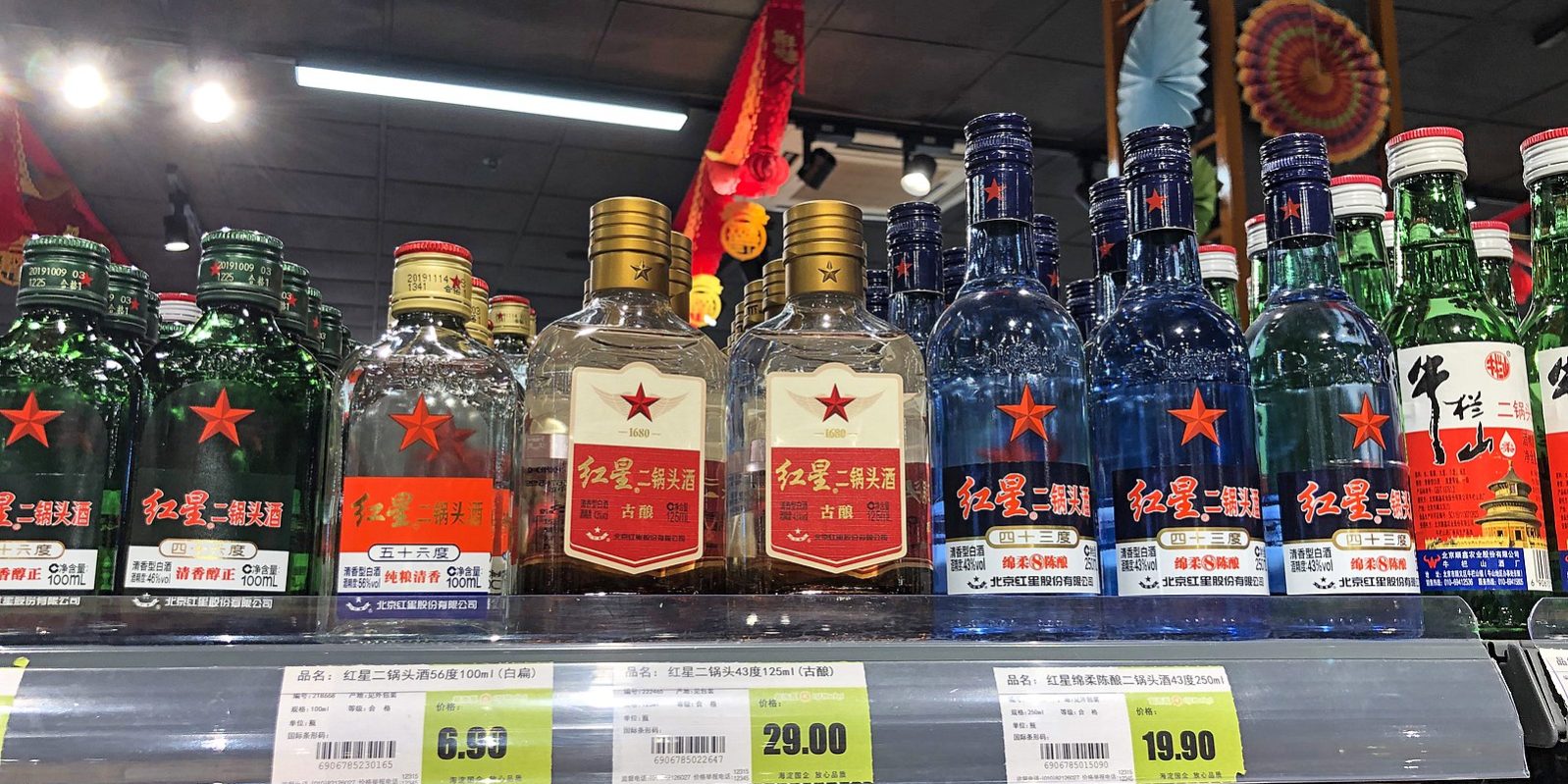Chinese baijiu, often referred to as “white liquor,” is a traditional distilled spirit that holds a prominent place in Chinese culture and social customs. With a history dating back over a millennium, baijiu is deeply ingrained in various aspects of Chinese life, from formal banquets and celebrations to casual gatherings and toasts among friends.
When you’re offered beijiu, take note of what it is, i.e., a very strong spirit, sometimes as alcoholic as 60-70 per cent proof. Erm, go slow. As with most alcohol, ‘you gets what ya pays for’. There are very low-priced, almost ‘weaponised’ brands available. Then, many households make their own. These can be very interesting. Some can be excellent. But the same rule applies: baijiu is very strong. Drink it with respect.
The production process of baijiu involves several steps, starting with the fermentation of grains like sorghum, rice, wheat, or barley. The grains are first soaked, steamed, and mixed with yeast to initiate fermentation, which converts the starches into alcohol. The fermented mash is then distilled, resulting in a potent clear liquor with a high alcohol content, typically ranging from 40% to 60% or more.
One of the defining characteristics of Chinese baijiu is its aroma, which is often described as fragrant, complex, and diverse. Baijiu aromas can be broadly categorised into four main types: strong aroma (Nong Xiang), light aroma (Qing Xiang), sauce aroma (Jiang Xiang), and rice aroma (Mi Xiang). Each category showcases a unique combination of scents, which may include floral, fruity, herbal, and even earthy notes.
Chinese baijiu is known for its potent flavour profile, and it is traditionally served neat in small porcelain or glass cups. Baijiu is a symbol of hospitality and camaraderie, and drinking etiquette holds great significance in Chinese social gatherings. Toasting, known as “ganbei,” is a common practice where participants raise their glasses to express respect and friendship. And remember, a ‘ganbei’ is a toast that requires the downing of the glass, so perhaps not applicable to wine or beer drinking.
Now, let’s review the best five baijiu brands in China:
Maotai: As the most famous and prestigious baijiu brand, Maotai’s reputation is unparalleled. With a history dating back to the Ming Dynasty, Maotai boasts a unique and enduring aroma known as “Moutai aroma.” Its exceptional craftsmanship, long fermentation process, and distinctive taste have earned it the title of China’s national liquor.
Wuliangye: Hailing from Sichuan province, Wuliangye is celebrated for its well-balanced flavour profile, incorporating sweet, spicy, and floral elements. Its smoothness and versatility make it a favourite among baijiu enthusiasts and a popular choice for various occasions.
Luzhou Laojiao: With over four centuries of heritage, Luzhou Laojiao is a respected baijiu brand cherished for its elegance and mellow taste. The traditional ageing process in earthenware jars contributes to its refined character.
Fenjiu: Originating from Shanxi province, Fenjiu is distinguished by its light and delicate flavour. Often associated with Chinese toasting customs, it is favoured during celebrations and festive events.
Xifengjiu: Known for its strong aroma and bold taste, Xifengjiu represents the robust side of Chinese baijiu. Produced in Gansu province, it appeals to connoisseurs seeking a powerful and memorable drinking experience.
Overall, these five baijiu brands exemplify the rich diversity and cultural significance of Chinese baijiu. From the iconic Maotai to the distinctive Xifengjiu, each brand offers a unique journey into the world of this cherished Chinese spirit. Whether you’re a seasoned baijiu enthusiast or a curious newcomer, exploring these brands can be a delightful and immersive experience in China’s vibrant drinking culture. Oh, and did we mention: go slow with it 😉 – Ganbei!












